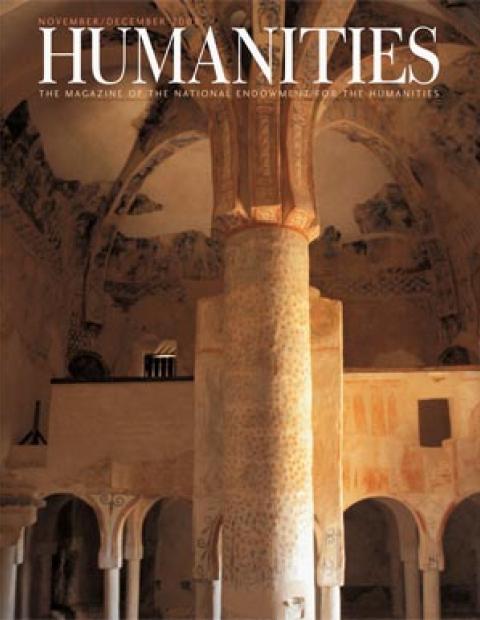Years ago, Ann Thompson lived in Springfield, Illinois, across the street from the house where Abraham Lincoln once lived. “I was always looking to see if he was walking at midnight,” Thompson said with a smile, recalling Vachel Lindsay’s poem. “He lingers where his children used to play / . . . He stalks until the dawn-stars burn away.”
If Thompson seems a little haunted by Lincoln, it may have to do with the blood-stained cloth she once owned from the night of Lincoln’s assassination.
Thompson, executive director of the Oklahoma Humanities Council, points to one-and-a-half pages of penciled notes detailing her connections to him, her musings for an essay she is writing. She said Lincoln, with his constant learning, has been an inspiration as she made her way to what she calls the world’s best job.
Roughly four years ago, Thompson met up with her friend, Marcia Wolter Britton, executive director of the Wyoming Humanities Council, during a meeting for humanities council staffs in Chicago. Thompson, who, at the time, was museum director at Southwestern Michigan College in Dowagiac, turned to her friend and said, “You have the best job in the world!”
When Anita May of Oklahoma’s council retired, Thompson, a Chicagoan, decided to become an Okie.
As director, Thompson oversees the council’s efforts to improve K-12 humanities education. One key project is the annual Lincoln essay contest. This year, elementary schoolers have been asked to address why Lincoln’s bicentennial should be celebrated. In April, the winners will be recognized at the Oklahoma History Center with prizes up to $200 and $250 classroom grants.
Thompson’s council work has allowed her to meet interesting Oklahomans—Pulitzer Prize-winning author N. Scott Momaday and Wilma Mankiller, former principal chief of the Cherokee Nation—and introduce fascinating people to Oklahomans, she says.
Mystery writer Sara Paretsky is a close family friend, so Thompson invited the creator of the V. I. Warshawski detective series to speak in Tulsa last October for the Oklahoma Conversation in the Humanities, a newly launched program. Its question-and-answer format “sets the tone for our audience for a casual interchange, making the speaker very accessible to their questions,” Thompson says. The successful format will be used again for this year’s conversation in Tulsa, perhaps with a filmmaker or screenwriter.
Another of Thompson’s successful pilot projects offers free humanities education for teachers. Next summer’s teacher institutes include Heartlands Across Six World Regions, which covers agricultural markets around the world, at Cameron University in Lawton; Cultural Diversity Across the Curriculum, at Oral Roberts University in Tulsa; and two institutes—Connecting the Western Tradition to Contemporary Experience and Teaching Civic Engagement and the Politics of Democracy—at the University of Central Oklahoma in Edmond. Faculty will include university professors and—paying tribute to the vital role of Native Americans in Oklahoma—tribal elders.
With Thompson’s arrival, the council has further extended its reach through a new website, and, in May 2008, it launched Oklahoma Humanities, a four-color biannual magazine highlighting the state’s history and cultural events, and council activities. The November edition includes a feature reflecting on the Lincoln bicentennial and the connections between literature and the history of slavery and abolition.
Thompson moved long ago from Springfield, but it’s evident the connection remains strong as she recites part of the speech in which Lincoln called on the “better angels of our nature.”
“[Humanities councils] appeal to the better angels of our nature,” Thompson says. “I’m lucky enough to be in a job that allows me to do that.”


